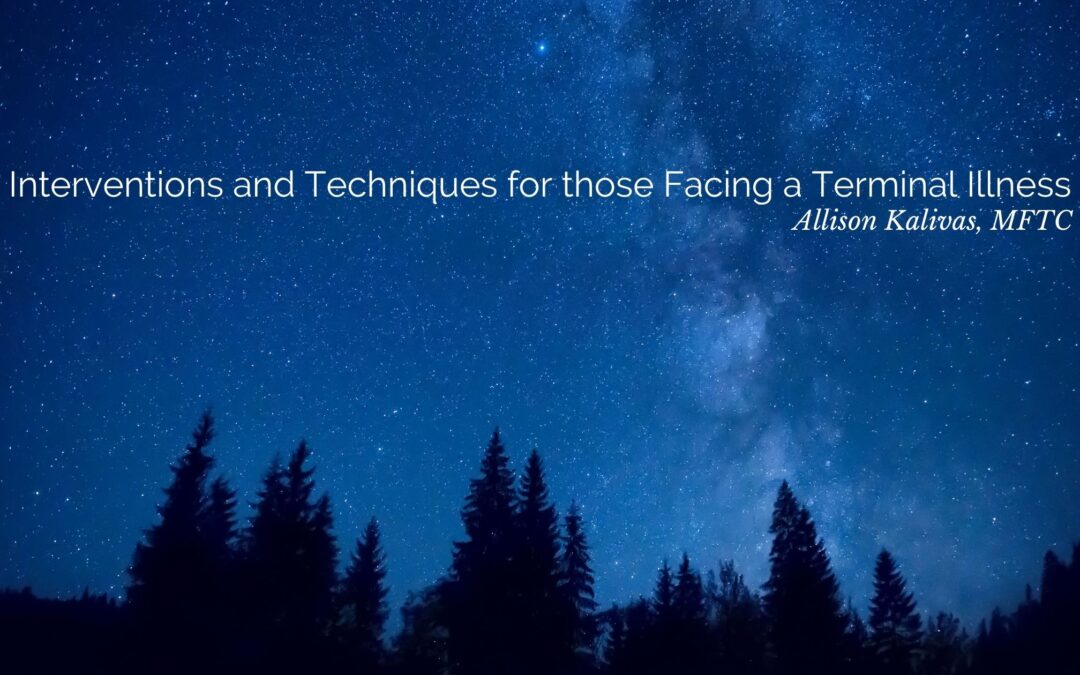Facing a terminal illness can be challenging for the individual with the diagnosis as well as their family members and friends. Though it is not easy, there are coping strategies and techniques that can help during this time:
Music for symptom management, such as pain and anxiety. A study by Gallagher demonstrated that music therapy provided terminally ill patients and their families relief from anxiety, and increased comfort with communication about issues pertaining to the illness.
- Making meaning out of the diagnosis can be very helpful to the grieving process of the individual and their family. To facilitate meaning-making it is helpful to be open around any spiritual perspectives, to aid in a shared understanding of your experience. It is also important to assess themes that are related to your sense regarding the purpose of life and the ability to see beyond the suffering. You can seek to determine the extent to which these beliefs can be called on for spiritual nourishment by asking:
- What are your greatest sources of strength?
- How would you respond when asked if you believe in God or a higher Power?
- How would you describe the purpose of your life?
- What do you hope “lives on” after your death?
- Reframing can help counter the sense of hopelessness that often accompanies a diagnosis of a terminal illness by encouraging yourself to cognitively reframe the notion of the finality of death and consider the ways that individuals “live on” after the physical end of life.
- A symbolic immortality can help you reflect on your spirit continuing through the children and family members who will live on, with good deeds that will long be remembered, the nice times and funny memories, their overall influence.
- Rituals can be used to help you mark transitions, facilitate healing, and demonstrate belief, meaning, or wishes. These specially designed actions are intended to change one’s perception of the situation.
- Provide a sense of personal power over the illness: This can be helpful with individuals who are unable or reluctant to verbalize his or her feelings.
-
- Spiritual journaling
- Life review 🡪 memories are recalled from early childhood all the way through current times
- Writing letters to love ones
- Giving meaning to specific objects passed down (jewelry)
- Planting a tree with family members
Local Resources
Compassion & Choices: Information on medical aid in dying for people with terminal illness.
Colorado Center for Hospice and Palliative Care: Hospice Foundation of America.
National Cancer Institute at the National Institutes of Health: select location and type of cancer and will list support groups in the area.
Judi’s House for grieving children


 Music for symptom management, such as pain and anxiety.
Music for symptom management, such as pain and anxiety.


